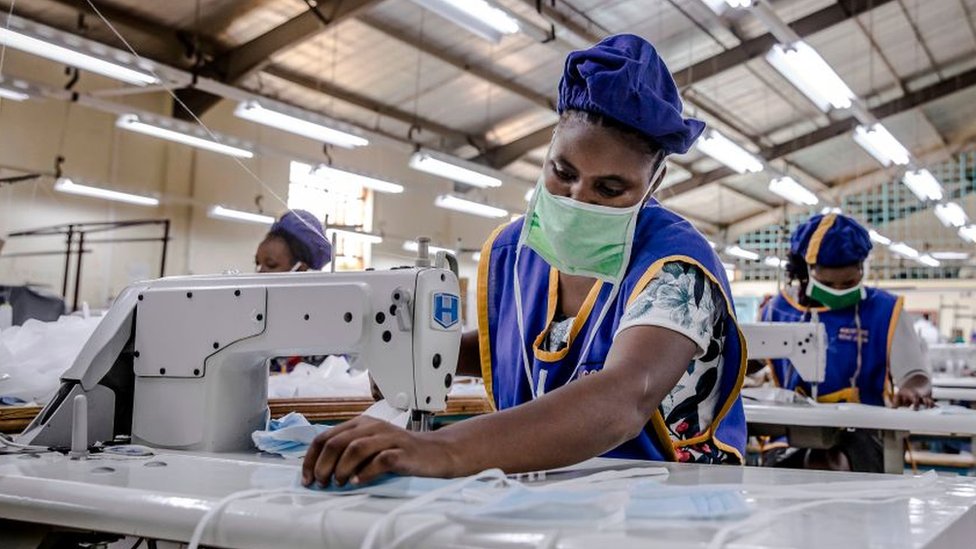This article reveals the missing link to Nigeria’s failure to truly industrialize. After a thorough study of the African and indeed the Nigerian manufacturing economy, I am going to reveal today what it takes to industrialize Nigeria, and indeed all of Africa. When we say our country is industrialized, what do we really mean? Do we harness our natural resources by ourselves? do we process them into finished products indigenously? Nigeria is truly industrialized if only we can answer yes to these questions. However, I shall explain in this article why we can’t say Nigeria is industrialized yet. Furthermore, I shall give you the solution or secret to industrialize Nigeria. Let me simply say that the secret to industrialize Nigeria and the rest of Africa lies in indigenous self-sufficiency, with Technology and innovation as driving force.
Have you ever wondered why made-in-Nigeria products keep flooding the markets, trade fairs and exhibitions, yet commodity prices keep rising? It is also ironical that even the few locally made products, exported to other countries are never commonly seen in the open markets for local consumption. While rising Gross Domestic Products (GDPs) ought to translate to local product sufficiency and consequent reduction in commodity prices, the reverse seems to be verifiably the case in the Nigerian context. We only see GDP statistics rising, while sadly prices of goods also rise, inflation skyrocketing, purchasing power dropping, our currency keeps devaluating in the FOREX market etc.
Certainly, this explains a fundamental problem somewhere along the entire value chain of our manufacturing economy and industrialization efforts. The fundamental problem is that we claim to be locally manufacturing, but in reality, we are not.
True industrialization is the key to a flourishing national economy and it only comes when a production process begins locally and ends locally. Therefore, to industrialize Nigeria requires a wholistic, indigenous technological revolution, which ensures the local processing of raw materials into finished consumables. In all these, there would be no form of material, technological or intellectual import requirement.

Industrialization is an Indigenous Concept
Let me explain further. Pick up any made-in-Nigeria product and let us analyze it. From its primary raw materials to other additives, chemicals used, materials combined to get the finished product, even the equipment and machines deployed in its production process, you will agree with me that over 70% of its manufacturing requirements were imported. I maintain that Industrialization is an indigenous concept. To industrialize Nigeria, internal self-sufficiency is the goal. Sadly, local manufacturers spend huge sums of money in foreign exchange to import materials for their production. Consequently, they sell these finished products at high prices to make minimal profit at the least. This outcome is anti-industrialization and no country’s economy ever develops on this narrative.
The fact – To industrialize Nigeria
Real industrialization lies in a country’s technological ability to mine or harness its natural resources, process or refine them into usable forms and still go ahead to polish or transform them into consumable or finished products. To industrialize Nigeria would mean total national ability to locally handle all these stages of raw material or product development. Therefore, at none of these stages would Nigeria rely on another country to assist. This is true technological and economic sovereignty.
Features of Industrialized Economy
It is not enough to drill crude oil, but end up exporting to another country for refining into PMS, diesel, base oil, petrochemicals etc. It is not enough to mine precious stones and solid minerals, but export them to other nations for processing into iron, steel, Aluminum, copper, cobalt, gold, diamond etc. it is also not enough to harvest ordinary cocoa pods and cotton, only to push them off to other countries for processing into chocolates, cocoa beverages and fabrics respectively. This is neither economically sustainable nor would it ever place Nigeria among the list of industrialized nations, no matter how much of these natural resources we are blessed with.
Therefore, it is even better to import natural or crude resources and process or develop them into finished products in your country as a true mark of an industrialized economy. Natural or crude resources sell cheaper and after processing or developing them, value has been added. As a result, the finished product sells expensively. This is why Nigeria spends higher importing fuel than it makes exporting crude oil.
To Industrialize Nigeria through Steel Revolution
It is high time Nigeria paid more attention to raw material development and process technologies. This is the root of true industrialization. For instance, if only the Ajeokuta Steel Company would become operational, Nigeria would have the ability to process iron ore and other metals to get any form of metal including steel, iron, etc. With this, the country would be able to build any metal-based equipment or machinery including aircrafts, weapons. The country would also be able to mould, cast or manufacture engines and other machine parts that drive the manufacturing of other sectors’ products. Can’t you see that we would be getting somewhere?
Interestingly, true industrialization via a wholistic indigenous manufacturing process ensures market-sufficient product outputs, lower operational or production cost, indigenous inventions and innovations, national reliance etc.
As a result, commodities manufactured locally in the real sense of it would sell cheaper. Furthermore, we shall have truly unique products, which are sufficient to saturate the local market and still have enough to export. No longer would our sachet water manufacturers depend on imported chemicals and nylon PVCs to produce sachet and table water. Because crude oil would be refined locally, the premium motor spirit (fuel), petrochemicals and other derivatives of crude hydrocarbons would become sufficiently available at a very low cost. This is true industrialization.




